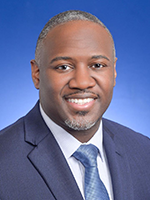Presidential Invited Address Speakers
Statisticians and the COVID-19 Pandemic

Susan S. Ellenberg
Perelman School of Medicine at the University of Pennsylvania
“Statistician” is not a recognized career goal for many children; few grow up thinking they want to be statisticians. Those of us who end up in statistics do so along many different pathways. Some major in mathematics, take a statistics course as part of their requirements and find love. Some study psychology and find that what they enjoy most are the quantitative issues. Some study biology and find that the mathematics of genetics is what intrigues them. ENAR President Reneé Moore and I followed the same path: we both wanted to be high school math teachers, and pursued degrees in secondary mathematics education. But we both found our way to biostatistics. One thing we didn’t learn much about in graduate school is how to convey statistical approaches and findings in ways that are clear to the medical community—this is something we learn on the job, and I think it’s something that Reneé and I both enjoy. During the COVID-19 pandemic, the need to convey statistical issues to the lay public as well as our medical colleagues became apparent. The COVID-19 pandemic presented many challenges to public health officials and researchers, and the role of statisticians with diverse areas of expertise was crucial to addressing the pandemic. Statisticians were needed to develop and implement new statistical methodologies, to design and analyze data from clinical trials and to serve on trial data monitoring committees, and, in consultation with government and public health officials, to help confront the misinterpretation of emerging data that threatened critical public health initiatives. In this presentation I will discuss some of the challenges met by statisticians over the past few years, and what we learned from them.
Biography
Dr. Susan Ellenberg is Professor Emerita of Biostatistics, Department of Biostatistics and Epidemiology with a secondary appointment in the Department of Medical Ethics and Health Policy, Perelman School of Medicine at the University of Pennsylvania. Her. research has focused on practical problems and ethical issues in designing, conducting and analyzing data from clinical trials, including surrogate endpoints, data monitoring committees, clinical trial designs, adverse event monitoring, vaccine safety and special issues in cancer and AIDS trials. At Penn, she has taught the primary course on clinical trials, led the statistical design and analysis of many major collaborative studies, chaired the organizing committee for the annual Penn conference on statistical issues in clinical trials and mentored many students and junior faculty.
Prior to her appointment at Penn, Dr. Ellenberg held positions of increasing responsibility at the NIH and the FDA. She is a Fellow of the American Statistical Association, the Society for Clinical Trials and the American Association for the Advancement of Science, and is an elected member of the International Statistical Institute. Her many awards include the F.N. David Award and Lectureship, given biannually by the Committee of Presidents of Statistical Societies to an outstanding woman in the statistical profession. Her book, Data Monitoring Committees in Clinical Trials: A Practical Perspective, co-authored with Drs. Thomas Fleming and David DeMets, was named WileyEurope Statistics Book of the Year for 2002; a second edition was published in 2019.
We Are All in the People Business: A Marine’s Reflection on Leadership

Adrian Coles
Bristol Myers Squibb
Biostatisticians are charged by society to help develop solutions and influence data-driven decisions in medicine, public health, and biology that improve quality of life for members of our society. Regardless of where you choose to contribute as a biostatistician, this charge requires skills beyond our technical skills and domain knowledge. The amount of time invested in our technical development and the delivery of technical work products often limits our investment in broad leadership development. This can limit the value we bring to our teams and organizations. This is especially true for mid-career quantitative researchers in all sectors who provide various forms of leadership with little formal leadership development. I explore several leadership lessons from my first career as a decorated United States Marine and the translation of these experiences into my journey as a clinical researcher.
Biography
Dr. Adrian Coles is a Director of Biostatistics at Bristol Myers Squibb. In this role, Dr. Coles provides strategic thought leadership to interdisciplinary drug development teams and operational leadership to his biometrics team to support the design and execution of clinical trials and regulatory approval of new medicines in immunology. He is an ardent professional servant and has held several professional service leadership roles. Some of these roles include Co-Chair of the ASA’s Antiracism Taskforce, IMSI Advisory Board member, ENAR’s RECOM member, and three terms as Chair of the ASA’s Committee on Minorities in Statistics. Dr. Coles received the 2018 Karen S. Pieper Teaching and Fellowship Support Award from Duke Clinical Research Institute and a 2019 Top 100 Lilly Innovator Award from Lilly Research Laboratories. Dr. Coles holds a BA in Math from the University of North Carolina at Wilmington and a PhD in Statistics from NC State University. Prior to attending graduate school, Dr. Coles served nearly nine years in the United States Marine Corps, where he received multiple awards for leadership and honorable service.
